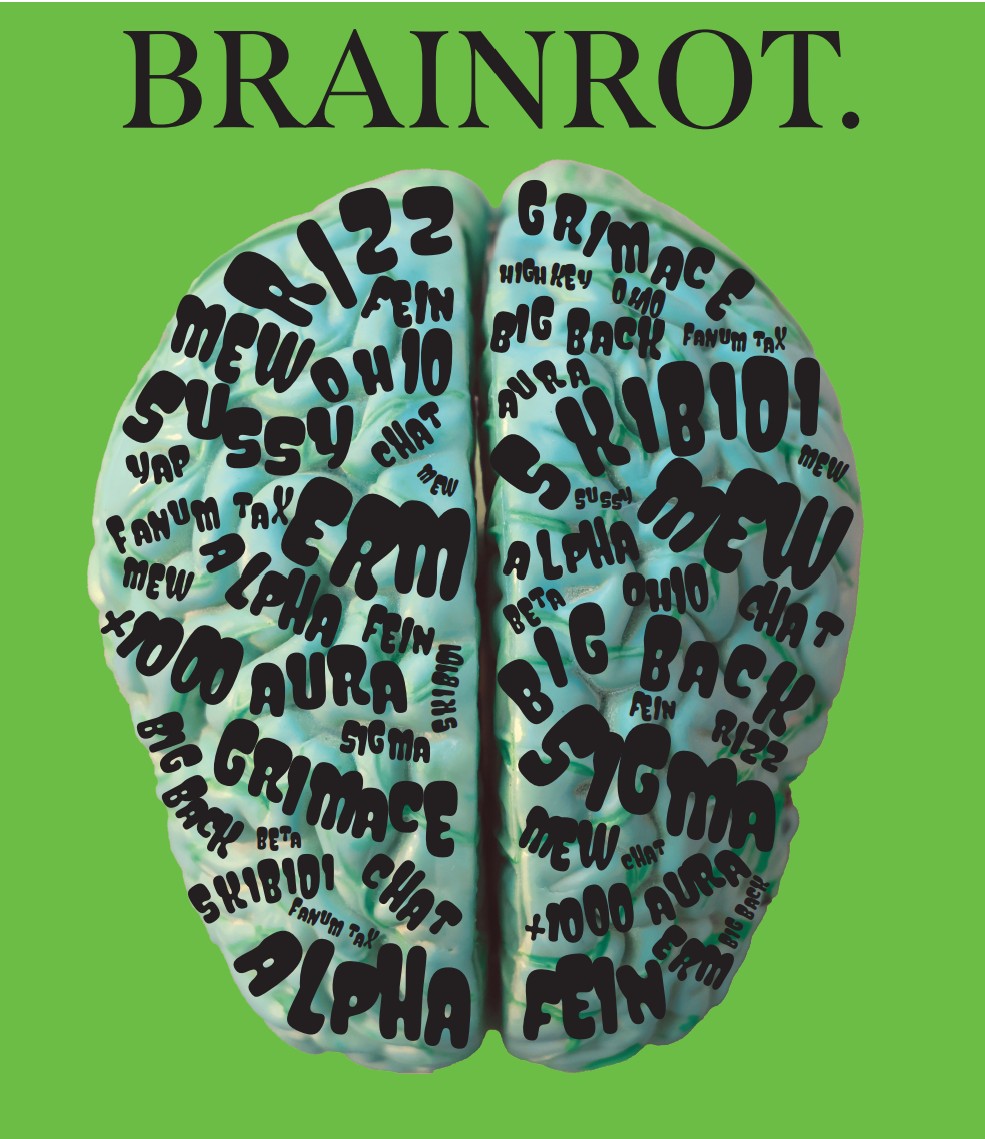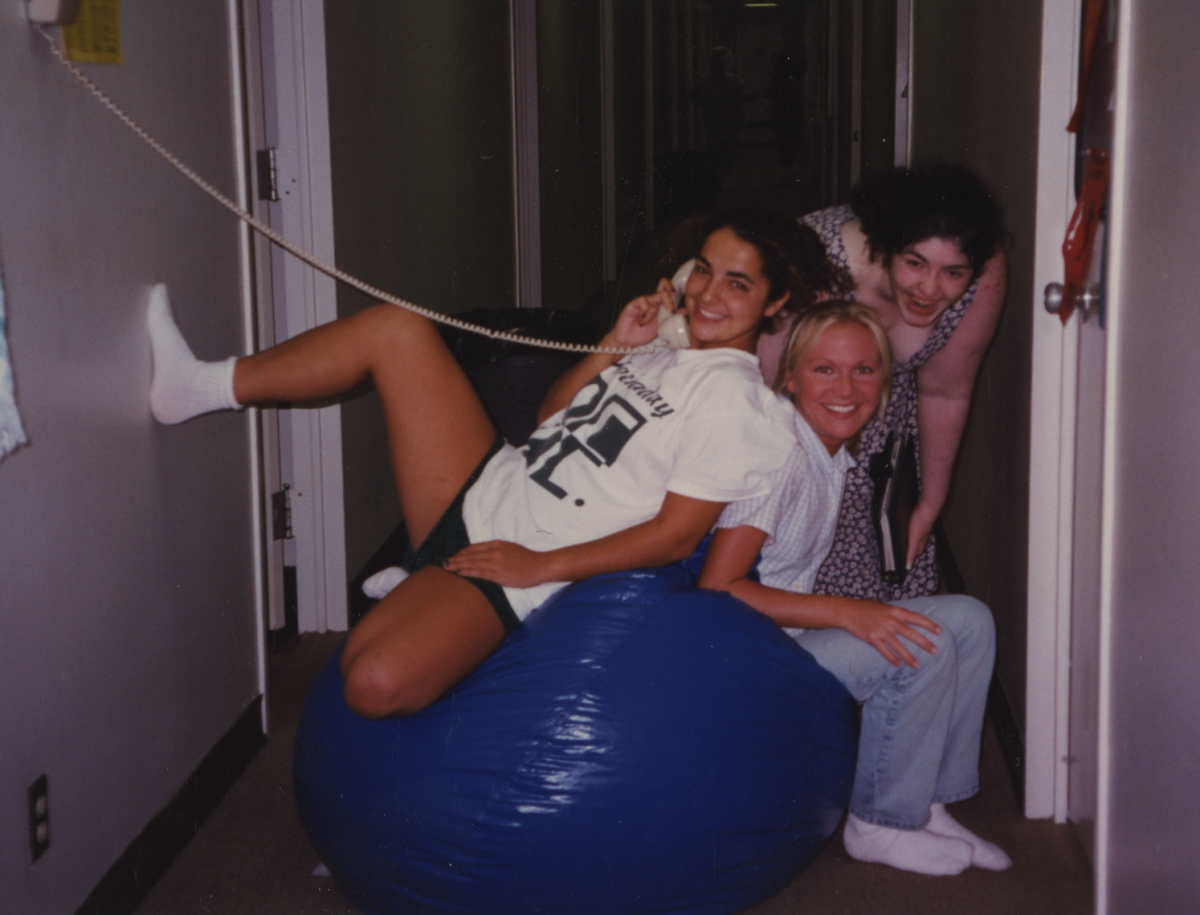Depression. The word itself causes controversy. An anonymous junior says, “Depression is something you accept, not something that’s forced upon you.” An anonymous senior disagrees, “I think it’s used too casually in conversation and most people don’t understand the severity of Depression or how it can truly incapacitate someone. I also think it goes undiagnosed or untreated in most people who suffer from it.”
According to the World Health Organization, Depression is the leading cause of disability worldwide, affecting around 120 million people and 18 million in the United States. Yet, this ailment does not just affect only adults. Rooint in their lives.
Depression is not just having a bad day or two in a row. It is having consecutive bad days for at least two weeks, marked by weight loss or gain, insomnia, high agitation, fatigue or loss of energy, feelings of worthlessness or self doubt, diminished ability to think or concentrate, or recurrent thoughts of death every day, and either a depressed mood most of the day or a markedly diminished interest or pleasure in almost all activities.
Depression puts a negative lens on its victim, “It’s like I have this view of everything that’s just makes my life terrible,” an anonymous senior says. “Most of the time, what I perceive to happen is contrary to what actually happens.”
Although there are many different causes and types of Depression, all forms share a similar characteristic: the victim has little to no control of its effects. Depression is not a weakness, rather, a chemical imbalance. Although a victim can overcome Depression with proper treatment and care, this recovery process can be difficult, and it takes time.
What Causes Depression?
According to the National Institute of Mental Health, 20 percent of teens will experience Depression before they reach adulthood. Many factors can contribute to Depression, which may be either a long-standing problem or a temporary response to a stressful situation, according to the United States National Library of Medicine. In teenagers in particular, Depression has been linked to the influence of sex hormones that become present during puberty as well as the stress associated with the normal maturation process.
“Your parents are letting you experience more,” says Sandra Bond Chapman, Dee Wyly Distinguished Chair Chief Director, Center for BrainHealth and Professor at UTD Behavioral and Brain Sciences, “and a part of your brain, the frontal part, [should be saying], ‘You can handle this; this is nothing. You’ve had another experience to know that this is going to pan out,’ but you don’t [have that experience so] it’s hard to see through the weeds.” This occasionally causes independence conflicts with parents, another contributing cause of Depression. Teens may feel pressure from their parents to do well in school, sports, or other activities. “Often, the parent really wants the student to be happy,” says Upper School Counselor and Director of Counseling Margaret Morse, “but the student perceives something else.”
Adolescent Depression may also surface as a reaction to a disturbing event such as chronic illness, poor social skills, a family history of Depression, child abuse, or unstable caregiving from a parent or guardian. “We’re all going to go through negative events, such as a family illness, a breakup, failure and disappointment,” says Morse. “What helps people pop back is self-confidence, a belief that ‘I can do something about negative events.’”
But teenagers often lack self-esteem, causing them to have higher vulnerability to Depression after a stressful circumstance. “This is the time when people feel completely unloved, ugly, stupid, or awkward, even though they are loved by everyone in their family, even though people are saying ‘but you just made an A!’” says Chapman. “It’s not even logical. It’s this feeling of downwardness.”
Another possible cause of Depression in teens involves pressure of all types. “Internal and/or external pressures to succeed in academics, sports, [or] extracurriculars, etc., often engender stress, and over time, stress tends to wear down our bodies and render us more susceptible to Depression,” says Dr. Kristen M. Ohlenforst, Ph.D, a clinical psychologist in a private practice.
However, Clinical Depression is not merely feeling stress in school, at home, or elsewhere. Ohlenforst adds that some amount of stress is normal, and this can actually be healthy because it helps push us to accomplish our goals. “If we weren’t ever stressed,” she notes, “we would never study for exams or pay bills on time or follow up on responsibilities. The point at which stress becomes a negative is when it begins to undermine our ability to function.”
What Depresion Looks Like
Some indicators of teenage Depression are hormonal and social changes—mood swings, irate attitude, anger, and lethargy. Because these are often misinterpreted to be the norm for adolescents, teenagers with Depression are “misdiagnosed” with ‘go-clean-your-room’ and ‘you’re-grounded.’ Sometimes, these teens are even thought to have learning disorders.
Morse explains some additional signs of teenage Depression. “Some symptoms are withdrawal, worry, not feeling good enough, low self-esteem, lack of motivation, lack of enthusiasm, anxiety, appetite or sleep disturbances, substance abuse, [and] risky behavior.” She explains that with teenagers, “while tearfulness and sadness is prominent, Depression can exhibit itself as irritability, ‘leave me alone,’ [and] ‘stop bothering me’ because teenagers want people off their back; they want it to all go away.”
The most common types of Depression for teenagers are Major Depression and Dysthymia, yet other types of Depression, such as Seasonal Affective Disorder or Adjustment Disorder, are possible in teens. Each type of Depression is serious and disruptive.
Major Depression, also known as Clinical Depression or Major Depressive Disorder, is common in both teens and adults. An episode of this particular kind of Depression is defined by the Diagnostic and Statistical Manual of Mental Disorders (DSM-IV) as, “a period of at least 2 weeks during which there is either depressed mood or the loss of interest or pleasure in nearly all activities.” Major Depression can last anywhere from seven to nine months.
Clinical Depression causes teens to feel “sad, hopeless, discouraged, or ‘down in the dumps,’” states the DSM-IV, continuing that it debilitates victims by interfering with their capability to enjoy things they usually find pleasing. However, some teens with Depression do not exhibit increased sadness. DSM-IV says, “In children and adolescents, an irritable and cranky mood may develop rather than a sad and dejected mood.”
Teens with major Depression often undergo a shift in their daily lives. “Many feel like they have to force themselves to eat,” says DSM-IV, explaining that others, “may have increased appetite or crave specific foods.” Insomnia, specifically middle (waking up in the middle of the night) and terminal insomnia (waking up too early), also becomes a problem in depressed teens.
A decrease in energy and an increase in tiredness are also symptoms of Clinical Depression. When depressed, a teenager becomes fatigued with even the simplest tasks. “For example, an individual may complain that washing and dressing in the morning are exhausting and take twice as long as usual,” says DSM-IV.
Dysthymia is another common form of Depression in teens. Often beginning in childhood and adolescence, Dysthymia, like Clinical Depression, prevents one from feeling happiness. However, the disorder differs from major Depression in that it is “characterized by chronic, less severe depressive symptoms that have? been present for many years,” says the DSM-IV. Dysthymia is often associated with being depressed most of the day, nearly every day, for multiple years.
Because this disorder is so long lasting, many teens may not recognize any change of mood or behavior. In other words, adolescents with Dysthymia exhibit chronic depressive symptoms that are often not readily recognized.
This form of Depression is particularly common in teenagers and young adults. “Dysthymic Disorder often has an early and insidious onset,” explains DSM-IV. Chapman agrees, “I think the majority of teenagers [with Depression,] have some form of what I would call ‘flatness,’ or Dysthymia. It is not Clinical Depression; it is this ‘flatness.’”
According to the DSM-IV, people with close biological relatives affected by major Depression are the most at risk for Dysthymia.
Before being formally diagnosed with Depression, teens and their families may fail at coping with changes in behavior. For example, the family of a depressed teen may attempt to reverse changes in the child’s behavior simply through extra love and attention. Chapman says, “When you get depressed, it’s like you go into inertia. It’s hard when your frontal lobe is actually not fully developed to go into a problem-solving mode and think, ‘Hey, I can do this,’ or ‘This could work.’ That critical thinking develops later.”
Depression manifests in teens in different ways. Sometimes, it may cause a drop in performance in school or work, a withdrawal from friends and activities, or arguments and conflicts in the victim’s life. Other times, some teens turn to substance abuse or reckless behavior to try and cope with their Depression. “When I started feeling depressed, I thought that the best way to cope with my Depression would be to forget it ever happened,” says an anonymous senior. “I began drinking excessively and smoking to try to help me relax, forget about how bad I felt, and stop my anxiety.”
According to a recent survey of Hockaday Upper School students, 18 percent of students with Depression also attempted to cope through abuse of substances, while 20 percent began behaving recklessly. Morse says the “Risky 5” symptoms or behaviors that accompany Depression are driving fast, drinking, drugs, cutting, and unprotected sex.
Treating Depression
Left untreated, Depre ssion can become extremely dangerous. According to the National Institute of Mental Health, untreated Depression is the number one cause of suicide, and suicide is the third leading cause of death among teenagers. According to an issue of Newsweek in May 2005, roughly half of the teenagers with untreated Depression may attempt suicide.
It is especially important for teens diagnosed with Depression to abstain from caffeine, drugs, and alcohol, as these depressant substances trigger manic and bipolar behavior. Anti-depressants may also be taken, but popular debate surrounds these pills as they can work counteractively. The “black box,” (sometimes yellow) warning label on all anti-depressant medications even cites, “Antidepressants may increase the risk of suicidal thoughts or actions in children, teenagers, and young adults.”
It is important to note alternative treatments for teenage Depression. As the U.S. Department of Health and Human Services and WebMD prescribe, sleep, natural supplements, meditation, and light are non-harmful remedies to Depression. A proper amount of sleep is necessary to maintain an emotional and hormonal balance in the body. Although this is difficult for many teens, who find themselves caught up in the pressures of school or tangled in technology and society’s webs, it is essential to enforce a bedtime and remove distractions from the room. Natural supplements such as fish oil tablets, rich in omega-3 fatty acids, and vitamin D tablets are safe ways to combat Depression and mood swings as well. Feng-shui, yoga, and other methods of meditation also encourage relaxation and proper blood circulation. Light therapy, too, either via natural sunlight or light boxes, can also promote serenity. Seeing a guidance counselor or therapist is also recommended.
There is much a teen and his or her family can do to alleviate Depression. For example, it helps to associate with positive people and develop a support system. Exercise, journaling emotions, and professional counseling may even open up a depressed individual to better cope with his or her self. Morse says, “I believe those are three ways we can help people to make a difference: we can help people increase self-esteem, feel more control, and [we can be] less critical. If we can build up these things, it makes us more able to face negative events.”
Hockaday
“Eating disorders, substance abuse, cutting, self-harm, or self injurious behavior”—these are the coping mechanisms girls in and outside of Hockaday cling to when depressed, says Morse.
“Why would I talk to someone? I wanted to be alone,” says a Hockaday junior. A senior adds, “At first, I didn’t want to tell anyone how I felt. I thought it made me weak. But eventually, I felt like I couldn’t hold it in anymore and told my best friend. After telling her, I felt suicidal because of my weakness on top of how low and rejected I felt.”
In a recent survey, 44 percent of Hockaday Upper School students believe they have suffered from some sort of Depression, and 21 percent have been diagnosed with Clinical Depression. Girls at Hockaday that shared their Depression with anyone chose confiding in a friend more often than confiding in a teacher, parent, mentor, sibling, or doctor. Seventy-one percent of students that had suffered from Depression also said that they had told a friend about their Depression.
“Depression seems to be very misunderstood by people who don’t have it. It’s not something we can help. You can’t just tell someone to ‘cheer up’ and dismiss them as being ‘too weak to handle their own problems,’” an anonymous Hockaday junior says.
Although the general causes of Depression are known, certain things affect Hockaday students more than others. Morse says, “Unrealistic expectations, girls pushing themselves beyond health limits, piling too much on their plate, and then having no time to sleep right or eat right… changes in family situations, such as bitter divorces, alcoholism, [and] pressures from parents [and society] to perform a certain way,” contribute to many of the Hockaday cases.
Morse explains that the schoolwork at Hockaday is not “the bad guy. Instead, the stress of schoolwork comes when a student is in over her head and chooses to take on too much, hence the workload is more than that particular student can handle. So much of Depression is about self-esteem—how a person perceives him or herself as competent and accepted/lovable.”
The top three symptoms of Depression that surveyed Hockaday students admitted to are sadness, loss of interest, and loss of energy. But one senior says, “I think stress, lack of sleep, illness, and social aspects were more of a result than a cause.”
-Lauren






